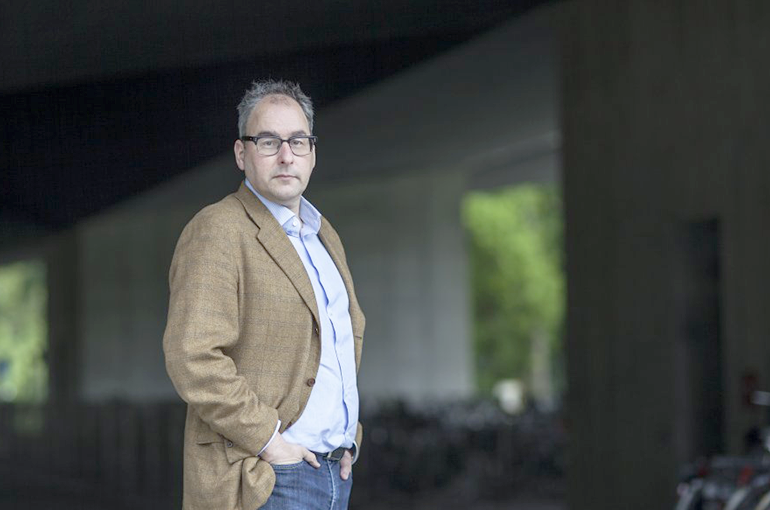Finish that treatment after all
Opinion of Marc Bonten, Professor of Molecular Epidemiology of Infectious Diseases
The rule to always finish an antibiotics treatment has been put under a lot of pressure due to a British survey. Prematurely ending a treatment would supposedly greatly reduce the chance of resistance. Marc Bonten, Professor of Molecular Epidemiology of Infectious Diseases at University Medical Center Utrecht, is not convinced of this. Yesterday, he was published in the Dutch newspaper Trouw with the opinion piece featured below.

“British colleagues reported last week that there is no scientific evidence for the advice to finish antibiotics treatments.” Nothing new for experts, but they – unintentionally – opened Pandora's Box in the layman's press. ‘Do not finish an antibiotics treatment’ and ‘Finishing an antibiotics treatment? Nonsense’ were headlines in The Telegraph and Trouw. Doctors are tasked with explaining this to their patients, who don't know what they should and should not believe by now.
The starting point of my English colleagues is clear: antibiotics contribute to the emergence of resistant bacteria, so the harming effect of antibiotics is reduced if a treatment is shorter. So how does that resistance emerge? ‘Emerge’ is not the right word, ‘selection’ is a better term. The genetic codes for resistance are on small pieces of DNA that can be exchanged between bacteria, like in the intestine (where billions of bacteria are lumped together). If only a few bacteria possess the codes (and are resistant), we will not notice. We will only notice it when many non-possessors of the code (the sensitive ones) have been wiped out by antibiotics and only resistant variants are left. A treatment usually takes five, seven, ten or fourteen days; numbers that have more biblical than scientific origins. For many (but certainly not all) infections, not all patients have to finish the treatment to be cured.
A treatment usually takes five, seven, ten or fourteen days; numbers that have more biblical than scientific origins.
Eighty-five per cent of antibiotics are used outside hospitals, so we can gain the most there. But what can be gained if patients quit when they feel better? At what point in the treatment does the selection take place? Does every antibiotics pill contribute equally to the selection, and does the risk accumulate every day? Or have the sensitive bacteria already been replaced after three pills, and does the rest of the treatment barely contribute to the selection of resistance? And if the average duration of a treatment is reduced from six to four days, is the number of infections caused by resistant bacteria then also reduced by a third? I fear no-one can answer these questions.
Self medication
There are also risks attached to the well-intended advice. What happens to the remaining pills? Are they returned to the pharmacy, or are they kept at home and ingested when the owner thinks they are needed again? The latter – self medication – is very common primarily in Eastern European and Southern European countries (where the resistance problem, for other reasons as well, is considerably bigger). If a few pills suffice to select resistant bacteria, it would not be very wise to facilitate self medication.
What to do with the ‘science’ that many infections do not require all patients to finish their treatments? The minimally required necessary duration of a treatment for most infections is unknown, and it is probably different for a healthy adult who has an airway infection once than it is for an 85-year old with many other diseases who has an airway infection three times per year. We do not want patients to be worse off by quitting earlier, of course, but that can only be assessed with big comparative surveys. And I have not even mentioned how different people experience ‘feeling better’.
That many antibiotics treatments could probably be shorter is very plausible. But it is unknown what the effects on the resistance problems will be and it will take years before we have the scientific foundation to safely tell a patient to ‘Stop once you feel better.’ Until then, there is no better advice than your family doctor’s advice.”
Marc Bonten, doctor-microbiologist and Professor of Molecular Epidemiology of Infectious Diseases at the University Medical Center Utrecht

